Living & Working in Poland
Culture and People

The majority of all people living in Poland (about 60%) have settled in the country’s urban areas. There are quite a few bigger
towns in Poland, with life in Poland focusing on five of them, which qualify as major cities. Warsaw, the country’s capital, alone
has about 1.7 million inhabitants. Most inhabitants are of a Polish descent. In fact, there is only a small minority of Germans,
Ukrainians, Slovaks, Lithuanians, and Belarusians
The country’s many traditions and local customs emerged from Latin and Byzantine influences and were strongly shaped
by various European occupiers. As mentioned above, life in Poland is mainly influenced by the geniality of the Polish people.
The culture is a rather welcoming one. Even if you do not speak the language fluently yet, you will probably be quickly included
and find new friends in Poland.
Weather in Poland
Weather in Poland changes all over the year, thogether with four seasons. Poland is situated in a moderate climate zone. In summer(July) – the temperature varies from 25° to 35° Celsius. The coldest months are January and February with temperatures falling a couple of degrees below zero. In the mountains, the weather conditions for winter sports are generally good.
Poland has as many as six distinct seasons. Apart from the four typical European seasons, there are also two periods described as early spring (przedwiosnie) and early winter (przedzimie). The seasons hardly conform to the calendar pattern. Throughout the year you might experience almost every type of weather.
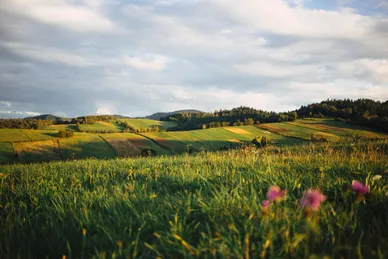
Spring: from March to May
Spring in Poland lasts usually about 60 days. The daily temperature at that time ranges from 5° to 15° Celsius. Beautiful time, but it rains often. This is when vegetation season begins in Poland.
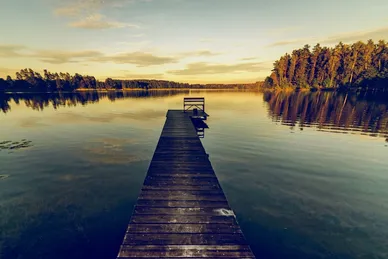
Summer: from June to August
The average temperatures is 25 degrees Celsius, which makes this season the best moment to travel and enjoy the beauty of Warsaw and Poland.
Time change:
Poland uses Central European Time (GMT + 01:00); Due to the Daylight Saving Time (DST) on the last Sunday of March at 2am we change time by adding one hour and on the last Sunday of October we take one hour back.
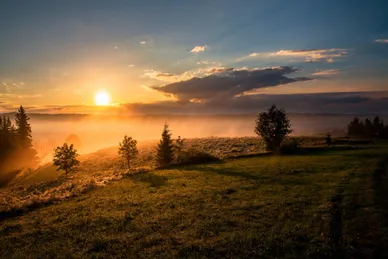
Autumn: from September to November.
Usually from the end of September till late November the temperatures vary from 5° to 15° Celsius. 15° Celsius means people usually wearing a bit warmer clothes. The nights are cold with around 0° to 5°Celsius. Very often it rains during this period, especially in November.

Winter: from December to February.
Winter in Warsaw can either be cold and snowy or windy and rainy. You can expect everything from the weather here. For the winter, be sure to have warm sweaters, winter coats, hats, gloves, sturdy boots, and thick socks.
Accommodation
There are many different options for arranging accommodation in Poland. They vary depending on the city and higher education institution you choose. Many Universities have their own dormitories, which are usually the cheapest option available. However, most students prefer to rent a room in a private apartment.
STUDENT HOUSES AND DORMITORIES
The pricing of the student houses depends on the particular University. Usually the cost of accommodation in a dormitory ranges is around EUR 60-80 monthly for a shared room and between EUR 100-150 for a single room. However, the standard of the dormitories may differ greatly even between various student houses of the same HEI, so it’s good to do some research before the final decision. What doesn’t differ is the friendly and helpful atmosphere in the student houses.

PRIVATE HOUSING
It is quite common in Poland to rent a room in a bigger apartment. Most of the out-of-town students share flats in this way. The cost varies between cities and it depends greatly on the location of the apartment as well as the size and quality of the room. The monthly rent is usually between EUR 150 and 200. Some landlords may require a deposit of a similar amount. Don’t worry if you don’t have friends to live with. Sharing a flat with locals is an amazing opportunity: you can pay for the accommodation and get great friends for free!
And if you really don’t like to share, you can find an independent apartment. The rent for the smallest, one-room apartment starts from about EUR 300 (in Warsaw).
Quick facts about housing:
– University Dormitories: 200-700 PLN shared room. Single room costs around 800-1200 PLN.
– Private flat: from 1000 to 1600 PLN per month, shared accommodation.
– Security deposit:One month’s rent / Advance rental as per the terms.
– Agency Fee:One-month rent . T&C apply
– Co-signer/guarantor:Students must have a guarantor residing in the European Union.
Guarantor can be arranged through the agency.
– Temporary or short-term housing:Rental contracts mostly cover 9 or 12 months and legally binding. T&C apply
– Pre-arrival rentals: Possible
Foods
Soup
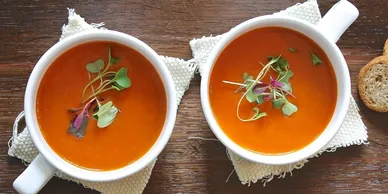
Polish cooking culture loves soups. There is a large variety of dishes based on soups too. There are very significant – żurek (sour rye soup with sausages and potatoes floating in it) and barszcz (beetroot, occasionally with dumplings thrown in).
Gołąbki
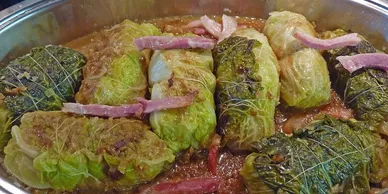
Boiled cabbage leaves stuffed with beef, onion and rice before being baked in a tomato sauce. Urban myth claims one of Polish Kings Kazimierz the Great, fed his army with gołąbki before his victory outside Malbork in a battle against the Teutonic Order.
Bigos
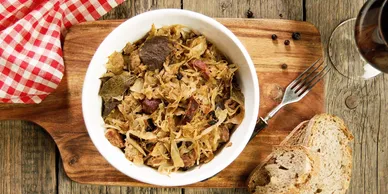
This is a dish typical for colder climates. Bigos, a.k.a hunters stew, is made using meat, cabbage, onion and sauerkraut before being left to simmer for a few days.
Pierogi
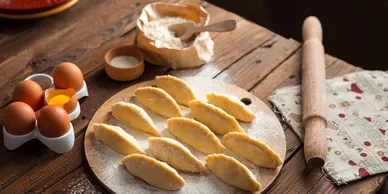
Pockets of dough traditionally filled with meat, cabbage or cheese, though you will also occasionally find maverick fillings such as chocolate or strawberries. This is one of most popular dishes here.
Kiełbasa

Sausages, and in Poland you’ll find several varieties made primarily with chicken, but sometimes using turkey, lamb and even bison (żubr). Few varieties to watch for including Krakowska, a Kraków specialty which uses pepper and garlic.
Placki

Nothing more than potato pancakes, often paired with lashings of sour cream. Again, all your traditional folksy Polish restaurants will have these on the menu, if not you have every right to raise a few questions in the direction of the kitchen.
Zapiekanki

Also known as ‘Polish pizza.’ Take a stale baguette, pour melted cheese on it and then cover it with mushrooms and ketchup from a squeezy bottle. Best eaten when absolutely plastered. Where to buy it: various fast food cabins dotted around the city centre.
Dessert
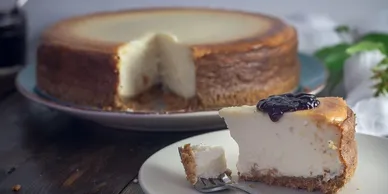
Few things in life get a Pole more animated than a good dessert. Sernik (a local variation of cheesecake) being a must if you want to even attempt to convince a Pole you have visited their country.
And Many More…
Costs of living
Thanks to fast growing and stable economy low costs of living and studying, while enjoying high quality of teaching is like a trademark of Poland.
Poland is going through a process of rapid economic development, thanks to that costs of living are still significantly lower than in most of the EU countries. A total amount of €200-€400 is enough to cover the basic cost of accommodation, food and transport. The cost of entertainment and participation in cultural events are also much lower than EU average, which effects costs of studies to be very competitive.
The minimum rate for studies is 2000 Euro a year, which is a few times lower than the EU average.
For rapid economic development Since 20 years Polish economy has significantly been growing.
For high level of security and personal safety Poland is much safer than most of the European countries.
Even the Nordic countries, considered as very safe, have much higher crime rate than Poland.
It’s perfectly safe in here for international students of all races, beliefs and origins.
This data is based on 18079 entries in the past 18 months from 1320 different contributors.
Last update: December, 2014
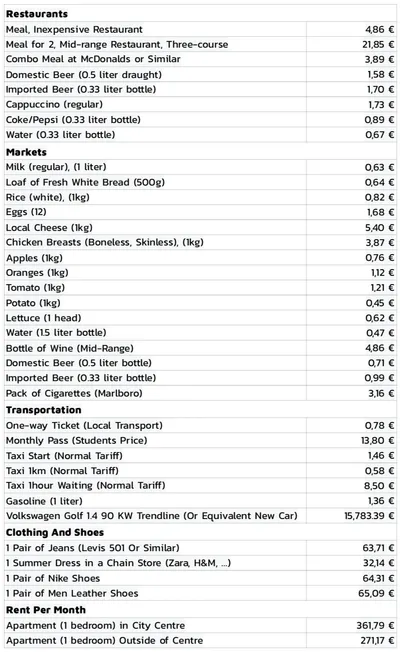
Interested?
If you would like to apply for any of the positions above, send your resume to info@workpermitpoland.pl
Remember to mention which position are you interested in!
In case of any other inquiries:
